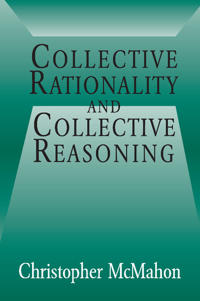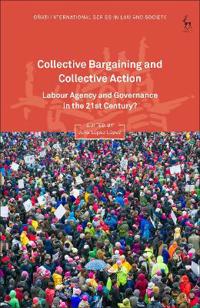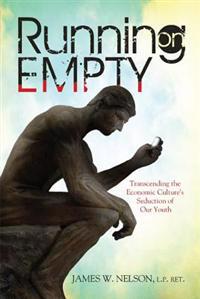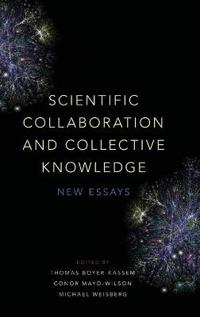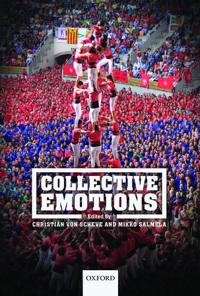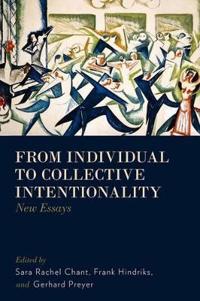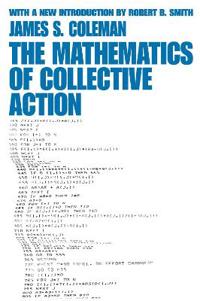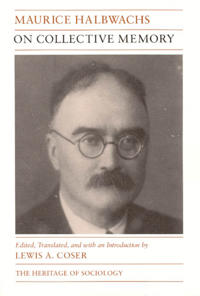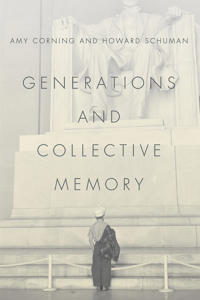Collective Trauma, Collective Healing (Inbunden)
avJack Saul
ISBN: 9780415884167 - UTGIVEN: 2013-09-04Collective Trauma, Collective Healing (Pocket)
avJack Saul
ISBN: 9780415884174 - UTGIVEN: 2013-09-04Collective Rationality and Collective Reasoning
ISBN: 9780521011785 - UTGIVEN: 2001-08This book examines the issue of rational cooperation, especially cooperation between people with conflicting moral commitments. The first part considers how the two main aspects of cooperation - the choice by a group of a particular cooperative scheme and the decision by each member to contribute to[...]
Collective Bargaining and Collective Action
ISBN: 9781509923168 - UTGIVEN: 2019-03This book offers a unique contribution that examines major recent changes in conflict, negotiation and regulation within the labour relations systems and related governance institutions of advanced societies. The broad scope of analysis includes social welfare institutions, new forms of protest incl[...]
Running on Empty: Transcending the Economic Culture's Seduction of Our Youth (Häftad)
avTurbulence Collective, John Holloway, Turbulence Collective
ISBN: 9781592984756 - UTGIVEN: 201204What Would It Mean to Win? (Pocket)
avTurbulence Collective, John Holloway, Turbulence Collective
ISBN: 9781604861105 - UTGIVEN: 201004Collective Choice and Social Welfare (häftad)
ISBN: 9780141982502 - UTGIVEN: 2017-01Nobel Prize winner Amartya Sen's first great book, now reissued in a fully revised and expanded second edition 'Can the values which individual members of society attach to different alternatives be aggregated into values for society as a whole, in a way that is both fair and theoretically sound? I[...]
Scientific Collaboration and Collective Knowledge
ISBN: 9780190680534 - UTGIVEN: 2017-11Descartes once argued that, with sufficient effort and skill, a single scientist could uncover fundamental truths about our world. Contemporary science proves the limits of this claim. From synthesizing the human genome to predicting the effects of climate change, some current scientific research [...]
The BRICS and Collective Financial Statecraft
ISBN: 9780190697518 - UTGIVEN: 2017-11The BRICS (China, Russia, India, Brazil, and South Africa), an exclusive international club, perceive an ongoing global power shift and contest the West's pretensions to permanent stewardship of the liberal economic order. Against expectations, they have exercised collective financial statecraft wit[...]
The BRICS and Collective Financial Statecraft
ISBN: 9780190697525 - UTGIVEN: 2017-11The BRICS (China, Russia, India, Brazil, and South Africa), an exclusive international club, perceive an ongoing global power shift and contest the West's pretensions to permanent stewardship of the liberal economic order. Against expectations, they have exercised collective financial statecraft wit[...]
Women's Realities, Women's Choices (Pocket)
avHunter College Women's Studies Collective, Ulka Bates, Florence Denmark, Virginia Held, Dorothy O. Helly, Shirley Hune
ISBN: 9780195150353 - UTGIVEN: 2005-03-03Emphasises on the significance of globalization in women's lives. This book, produced by authors who are specialists in fields ranging from anthropology to classics and medicine, features a number of changes. It looks at the developments in economics, medicine, politics, religion, and culture, impac[...]
The Collective Memory Reader (Inbunden)
avJeffrey K. (EDT) Olick, Vered (EDT) Vinitzky-Seroussi, Daniel (EDT) Levy
ISBN: 9780195337419 - UTGIVEN: 2011-02There are few terms or concepts that have, in the last twenty or so years, rivaled "collective memory" for attention in the humanities and social sciences. Indeed, use of the term has extended far beyond scholarship to the realm of politics and journalism, where it has appeared in speeches at the ce[...]
The Collective Memory Reader (Häftad)
ISBN: 9780195337426 - UTGIVEN: 201104There are few terms or concepts that have, in the last twenty or so years, rivaled "collective memory" for attention in the humanities and social sciences. Indeed, use of the term has extended far beyond scholarship to the realm of politics and journalism, where it has appeared in speeches at the ce[...]
United Nations and the Development of Collective Security, The: The Delegation by the UN Security Council of Its Chapter VII Powers (Pocket)
avDan Sarooshi
ISBN: 9780198299349 - UTGIVEN: 2000-08-03The Political Economy of Collective Skill Formation (Inbunden)
avArlene G. Fink
ISBN: 9780199599431 - UTGIVEN: 201111Education, skill formation, and training continue to be important areas of consideration for both public policy and research. This book examines the particular types of vocational training known as collective skill formation systems, whereby the training (often firm-based apprenticeships) is collect[...]
Extraterritoriality and Collective Redress (Inbunden)
avDuncan Fairgrieve, Eva Lein, Duncan Fairgrieve
ISBN: 9780199655724 - UTGIVEN: 201212An expert analysis of the relevant law and jurisprudence in mass litigation, this edited work examines the diverse and complex transnational considerations and issues of collective redress. With contributions from distinguished and authoritative commentators on this topic, the coverage is broad, tho[...]
Collective Emotions (Inbunden)
avChristian von Scheve
ISBN: 9780199659180 - UTGIVEN: 2014-01Although collective emotions have a long tradition in scientific inquiry, for instance in mass psychology and the sociology of rituals and social movements, their importance for individuals and the social world has never been more obvious than in the past decades. The Arab Spring revolution, the Occ[...]
Essays in Collective Epistemology (Inbunden)
avJennifer Lackey
ISBN: 9780199665792 - UTGIVEN: 2014-12We often talk about groups believing, knowing, and testifying. For instance, we ask whether the Bush Administration had good reasons for believing that Saddam Hussein had weapons of mass destruction, or whether BP knew that its equipment was faulty before the oil spill in the Gulf of Mexico. Epistem[...]
Class, Mass and Collective Arbitration in National and International Law (Inbunden)
avS. I. Strong
ISBN: 9780199772520 - UTGIVEN: 2014-01Class arbitration first developed in the United States in the 1980s as a means of providing large numbers of individuals with the opportunity to assert their claims at the same time and in the same proceeding. Large-scale arbitration has since spread beyond U.S. borders, with collective arbitration[...]
From Individual to Collective Intentionality
ISBN: 9780199936502 - UTGIVEN: 2014-03Many of the things we do, we do together with other people. Think of carpooling and playing tennis. In the past two or three decades it has become increasingly popular to analyze such collective actions in terms of collective intentions. This volume brings together ten new philosophical essays that [...]
The Mathematics of Collective Action (Pocket)
avJames S. Coleman, Robert B. (INT) Smith, James S. Coleman
ISBN: 9780202307909 - UTGIVEN: 2006-03Philosophers, social scientists, and laymen have used two perspectives in analyzing social action. One sees man's action as the result of causal forces, and the other sees action as purposive and goal directed. Mathematical treatment of social action has shown this same dichotomy. Some models of beh[...]
Collective Imaginings
ISBN: 9780203003398 - UTGIVEN: 2015-06Why would the work of the 17th century philosopher Benedict de Spinoza concern us today? How can Spinoza shed any light on contemporary thought?In this intriguing book, Moira Gatens and Genevieve Lloyd show us that in spite of or rather because of Spinoza's apparent strangeness, his philosophy can b[...]
Collective Action and the Civil Rights Movement
ISBN: 9780226104416 - UTGIVEN: 1991-05Collective Action and the Civil Rights Movement is a theoretical study of the dynamics of public-spirited collective action as well as a substantial study of the American civil rights movement and the local and national politics that surrounded it. In this major historical application of rational ch[...]
On Collective Memory (Häftad)
avMaurice Halbwachs
ISBN: 9780226115962 - UTGIVEN: 199207How do we use our mental images of the present to reconstruct our past? Maurice Halbwachs (1877-1945) addressed this question for the first time in his work on collective memory, which established him as a major figure in the history of sociology. This volume, the first comprehensive English- langua[...]
Generations and Collective Memory
ISBN: 9780226282664 - UTGIVEN: 2015-08When discussing large social trends or experiences, we tend to group people into generations. But what does it mean to be part of a generation, and what gives that group meaning and coherence? It's collective memory, say Amy Corning and Howard Schuman, and in Generations and Collective Memory, they [...]



